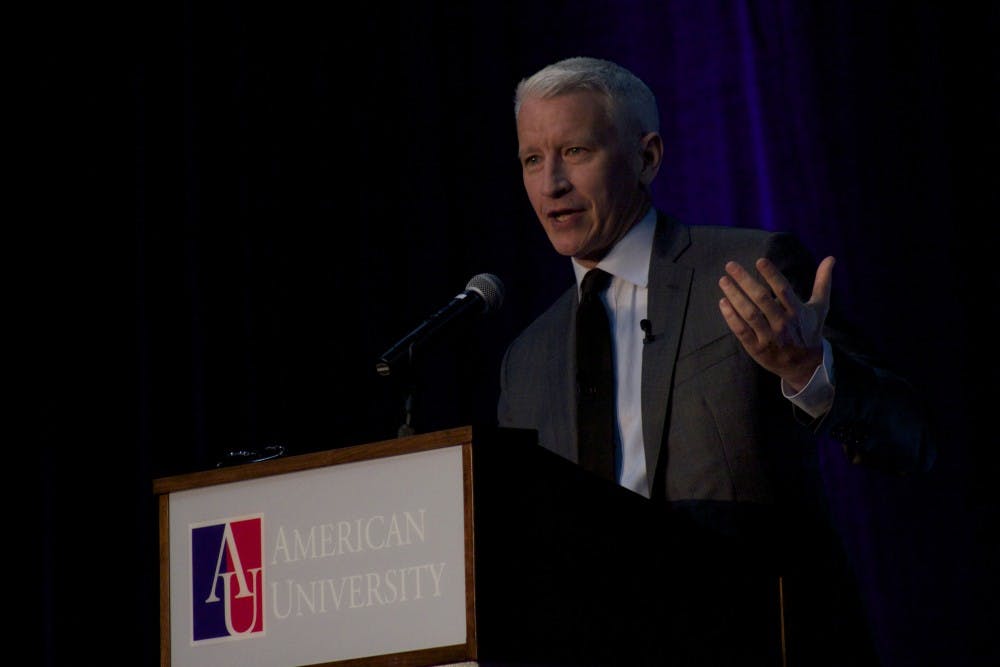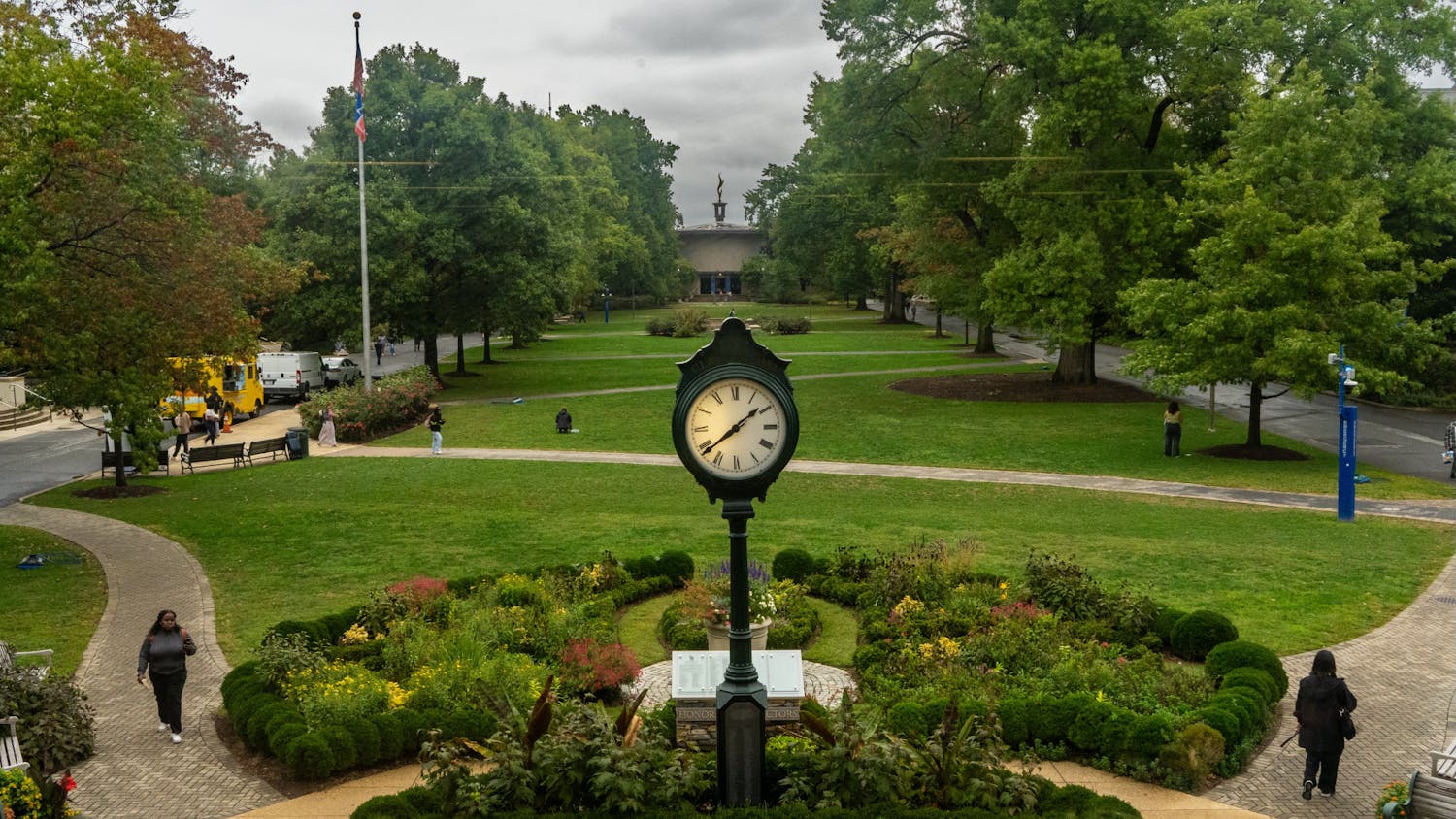CNN anchor Anderson Cooper was honored with AU’s “Wonk of the Year” award in front of a massive crowd in Bender Arena on Oct. 19. The event was hosted by The Kennedy Political Union.
Cooper is the second recipient of this award, a year after former President Bill Clinton accepted it. The “Wonk of the Year” is intended to recognize “someone passionate, focused and engaged who uses their knowledge and influence to create meaningful change in the world,” according to the AU website.
AU defines the term “wonk” as someone who is smart, passionate and engaged, according to “Wonk of the Year” event moderator and School of Communication professor Jane Hall.
“I don’t really think of myself as a wonk,” Cooper said backstage prior to the event. “I am passionate and engaged. I don’t know how smart I am, but I appreciate the fact that people think I am.”
Cooper, who is well-known for his presence in the field of broadcast journalism and his role as the host of CNN’s AC 360 °, began his career as a war correspondent.
“When I graduated college I couldn’t get an entry level job in journalism, and I had to come up with a more circuitous route,” Cooper said in an interview with The Eagle. “I made a fake press pass, I borrowed a camera and I started going to wars by myself.”
Cooper told students journalism is one mechanism he uses to do what he can for those in conflict areas.
“You can’t stop suffering. You can’t stop terrible things from happening, but you can bear witness… The least us reporters can do is go there and tell their stories, “ he said during his speech.
He has since covered many international and domestic conflicts, including the shooting at Sandy Hook Elementary School in Newtown, Conn. last year.
Cooper expressed his dismay over how the news media often covers shootings and how these events are remembered as a product of the perpetrator instead of a memorial of the victims.
“I don’t think history should remember the [shooter’s] name,” he said in the speech. “They should remember the names of the victims.”
Despite his self-proclaimed passion for the truth and unbiased reporting, Cooper notes there are instances when his compassion trumps journalism ethics of remaining independent from a story.
In one notable moment, Cooper saved a Haitian boy from death during his coverage on Haiti after the 2010 earthquake.
“It’s just something I did and it’s not something I regret,” Cooper said in an exclusive interview with The Eagle. “I think it’s important to be a human being as well as a reporter.”





